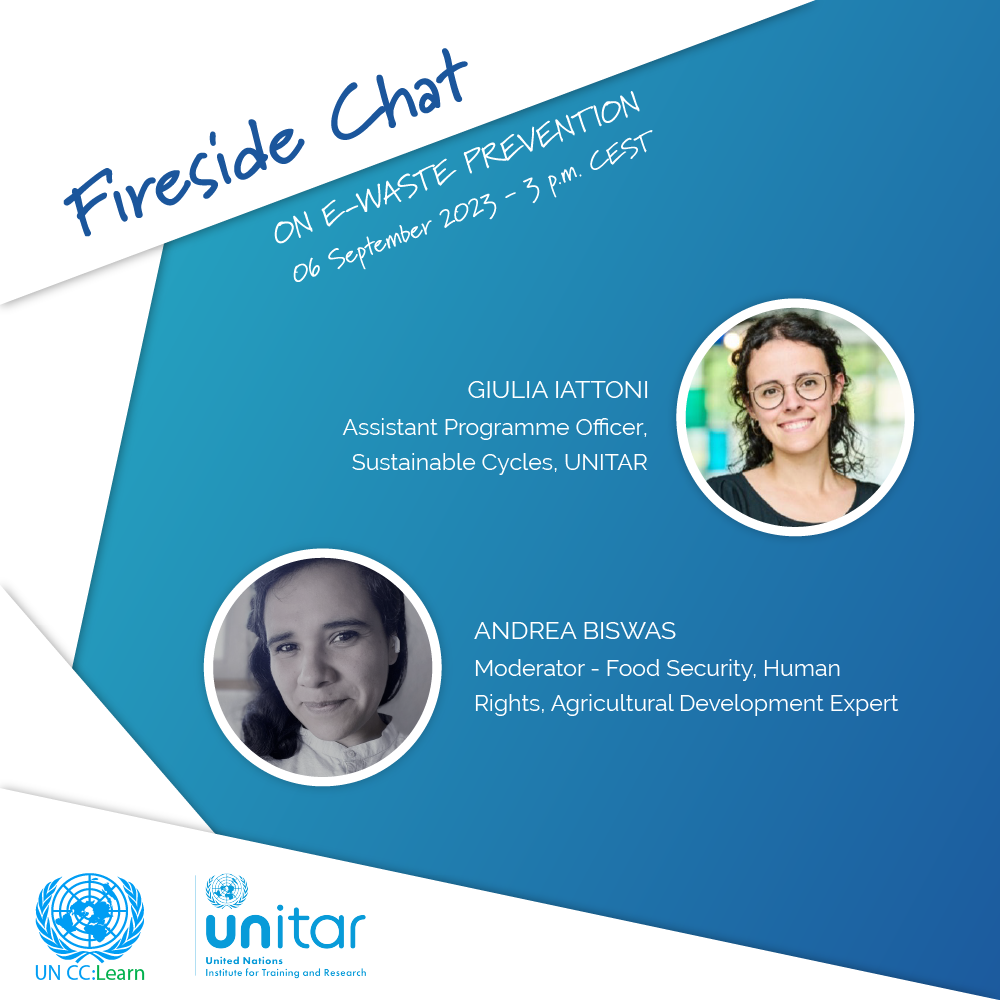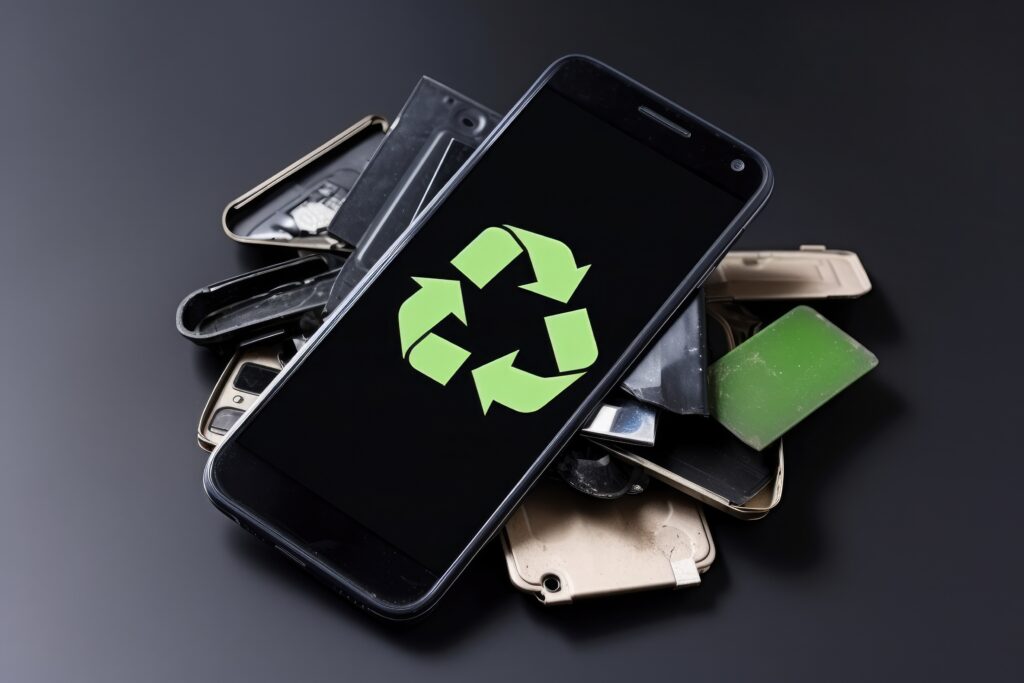Did you know that e-waste is fastest growing waste stream in the world?
By 2030, e-waste is projected to reach a staggering 50-70 million tons globally, with great negative consequences for both people and the environment.
As technology evolves and the world gets even more interconnected, devices like smartphones, tablets and laptops have become mainstream, but the way in which countries deal and manage the waste stemming from their use and disposal is still falling short of the minimum necessary.
To help UN CC:Learn alumni unpack the complex e-waste issue, we invited Ms. Giulia Iattoni, Assistant Programme Officer at UNITAR’s Sustainable Cycles (SCYCLE) programme to a one-hour Fireside Chat on “How to Prevent E-Waste”.
During the exchange, moderated by Ms. Andrea Biswas, a Researcher and Development Professional, Ms. Iattoni shed light on what electronic waste is, its far-reaching human and environmental impacts, and how we can all be part of the solution by taking responsibility for this problem and supporting circular economy initiatives and preventing e-waste in the first place.
Ms. Iattoni stressed the importance of having good and reliable data that can inform policymakers in the different e-waste management and prevention strategies and policies. In this context, she highlighted the role SCYCLE is playing in this area through several insightful publications, such as the Global E-Waste Monitor.
In addition, she spoke about the importance and urgency of introducing legislation that holds electronic producers accountable throughout the whole value chain of the devices they make. Moreover, Ms. Iattoni highlighted how waste prevention is paramount to dealing with this problem. For instance, she brought up the importance of integrating the informal sector in e-waste management, especially in developing countries, and the success and effectiveness of “repair cafés”, gathering where people get together to repair their used electronic devices together.
The three main takeaways of the Fireside Chat were:
- The best e-waste is the one that does not exist: as consumers, we hold immense power in making sustainable choices that favour products with longer lifespans, better warranties, and repair-friendly designs.
- Data, awareness, and research are our allies: understanding the scale of the e-waste problem is the first step. Reliable data, research, and raising awareness are our allies in addressing this challenge.
- Shared responsibility for a sustainable future: the responsibility to tackle e-waste doesn’t fall on any single entity – it’s a shared effort involving governments, producers, recyclers, and consumers.
This Fireside Chat are part of UN CC:Learn’s alumni engagement initiatives and was organized for everyone who had completed the ‘’E-Waste Prevention” e-course.
The Fireside Chats provide exclusive, direct access to the personal/professional insights of UN and other thought leaders/experts on climate change topics. They consist of short (45-60 minutes), informal interviews with engaging specialists followed by an interactive Q&A with participants able to submit questions to the experts in advance.

Fireside Chat Promotional Flyer.

